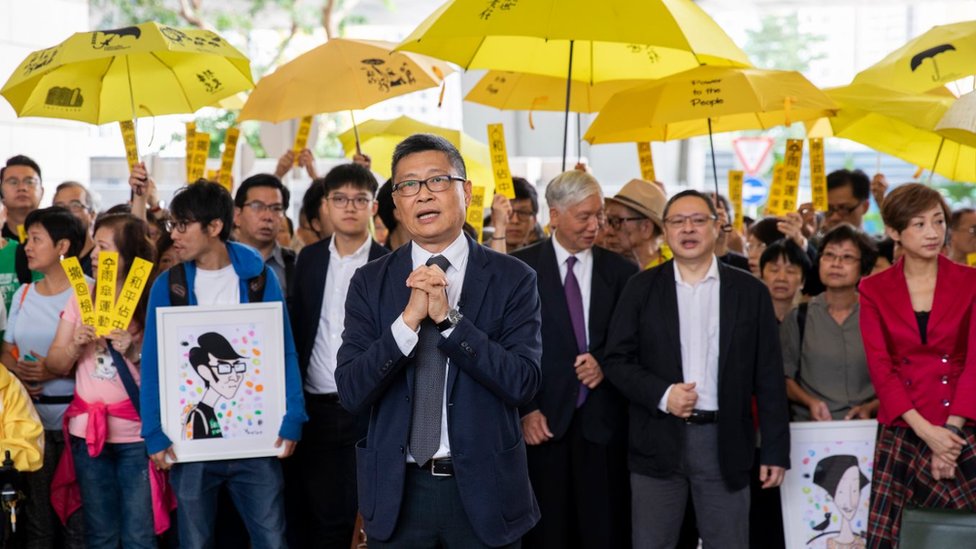INSUBCONTINENT EXCLUSIVE:
Image copyrightEPAImage caption
The nine were met by more than a hundred supporters outside the court
Nine pro-democracy activists in Hong Kong have pleaded not guilty in a trial seen as a test of judicial independence from Beijing.They have
been charged with "public nuisance" over the 2014 "Umbrella" movement that demanded Hong Kong choose its own leader.Three of those accused
founded the civil disobedience movement before student groups joined in.At its peak, thousands of protesters paralysed parts of the city for
months.The charges carry jail terms of up to seven years.The trial has been described as "politically motivated prosecution" amounting to
"an attack on free speech and peaceful assembly" by rights group Amnesty International
The other six accused include lawmakers and students.Image copyrightReutersImage caption
The 2014 umbrella protests
paralysed central Hong Kong for almost three months
Among the nine accused are sociology professor Chan Kin-man, 59, law
professor Benny Tai, 54, and Baptist minister Chu Yiu-ming, 74, who founded the "Occupy Central" movement in 2013
It was in reaction to a decision made by China that it would allow direct elections in 2017, but only from a list of candidates pre-approved
by Beijing.Many people in Hong Kong believe they should have the right to elect their own leader
A year later, the three activists' call for non-violent civil disobedience joined with student-led protests and snowballed into the massive
demonstrations.Hong Kong's courts have already convicted three students of unlawful assembly over the protests
The prosecution in this trial argued these demonstrations caused "common injury done to the public", by locking down parts of the
city-centreThe protests became known as the Umbrella movement after people used umbrellas to shield themselves from tear gas fired by police
to disperse the crowd.China and Hong Kong have a "one country, two system" agreement, with freedom of speech and press freedom among the key
liberties that set Hong Kong apart from the mainland.Ahead of the trial, all nine were met outside the court by supporters shouting slogans
like "Peaceful resistance! I wanted real universal suffrage!" in support.Last week, Professor Chan had given an emotional farewell lecture
at the Chinese University of Hong Kong, announcing his early retirement
"So long as we are not crushed by imprisonment and trial and do not become overly frustrated and angry, then we will become stronger and we
can inspire many more people," he told the audience.At the heart of the protests is a growing concern in Hong Kong about what is perceived
to be China's increasing influence in the city.Beijing is highly sensitive about Hong Kong's status and any calls for more autonomy from
China.The former British colony was handed back in 1997 on condition it would retain "a high degree of autonomy, except in foreign and
defence affairs" for 50 years.

